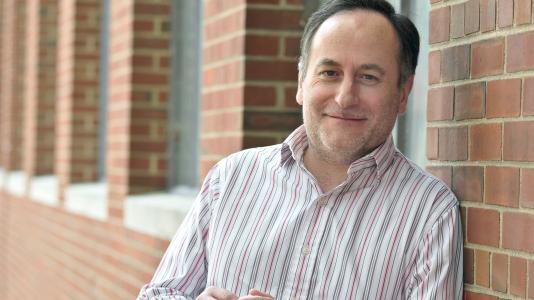
ARGONNE, Ill. – Argonne Chemical Sciences and Engineering Division Director Emilio Bunel recently was selected as a Luminary Honoree by the Hispanic Engineer National Achievement Awards Corporation, or HENAAC. The award “honors [Bunel’s] efforts leading, collaborating, and initiating key programs and research.”
Bunel took the time to answer a few questions about his career and about the award.
What does the award mean to you?
This award really recognizes the fact that here in the United States there are a very large number of scientists who, like me, have come from abroad to contribute to the progress of science and technology here in this country. This award is a great way to acknowledge the many contributions of foreign scientists like myself.
Did you always see yourself in leadership?
I’ve always been the type of person to look for challenges that have multiple parts, which is why I wanted to stay heavily involved in my scientific work and lead people at the same time. I’ve always been driven to respond to the ways that science changes and to look for ways to respond to those changes. I’m grateful that I have been given the opportunities I have to succeed throughout my career.
What’s the best part of your job?
I love to connect basic science with applied science. When I was working in industry, the basic science component was quite small compared with the applied. At a national lab, I’ve come to appreciate the balance between curiosity-driven and the user-inspired science. In industry, that balance was more prevalent during the 1980s and 1990s, but during the past twenty years or so a national lab has today become the only place where you can tackle both kinds of challenges simultaneously.
What made you successful earlier in your career?
Throughout my career, I’ve had a few strong mentors that helped me navigate through some of the tougher challenges I’ve faced, at least in the early stages, and even today I still have people that I get in touch with when I need help. The tricky issues happen when you’re in charge of a large organization, because then it really helps to have an outside point of view. My mentors have been able to give me that objective look on the issues I’ve faced, and they’ve also helped me to realize what direction I need to move in terms of research.
Do you mentor young scientists yourself?
I am still in touch with the vast majority of the people I used to work with. I get requests for letters, ideas, counsel, and I’m open for more. I firmly believe that the one thing that you will be known for eventually is the people that you train; you will be judged by the quality of the scientist that you help to nurture and grow. That’s why mentorship is so important and is part of my daily activities.
Also, I simply like talking to people. We share ideas and new directions for science. New approaches, new concepts, and new proposals can result. The collaborative aspect is what really appeals to me. In an environment like Argonne, we are set up to work together. The lab is also set up to work with industry as a major partner.
What is your management style and what are your management priorities?
I don’t like to micromanage people – I like to give people the freedom to do what they want and need to do to be successful.
My management priority is safety, number one. The other priority that I have that I really like is to develop people. I like to say that my favorite sport is to help young scientists get promoted – you have to make sure that you develop the right package, present it correctly, and convince people that this person is worth promoting. We have been very successful in the past five or so years promoting people in our organization.
What advice would you give to young scientists or people contemplating careers in STEM?
When I give advice to people who are trying to live in an academic world, I tell them that there is a huge personal commitment that goes into making that choice. If you really want to go into it, you need to know the challenges you are taking on. Science as an academic career is a business and as such you have to be a good provider. I encourage people interested in science careers to think about the two choices – between academic science and industry. I’ve been lucky enough to be able to do some of both.